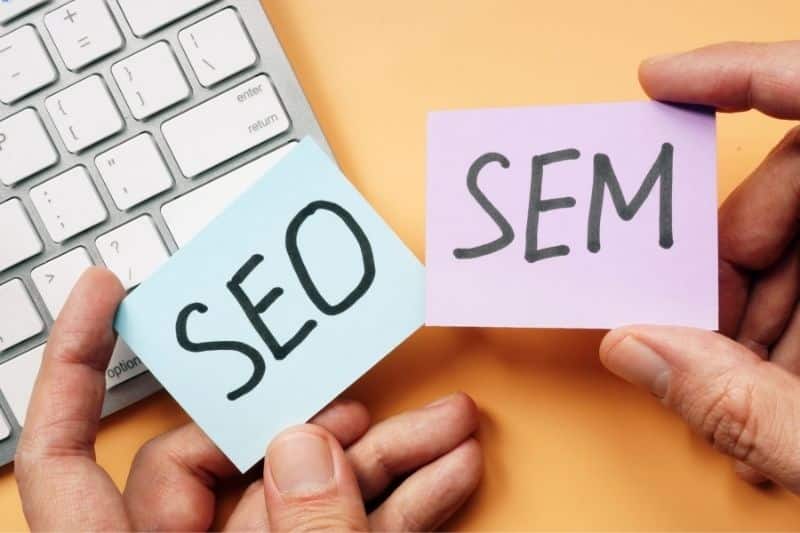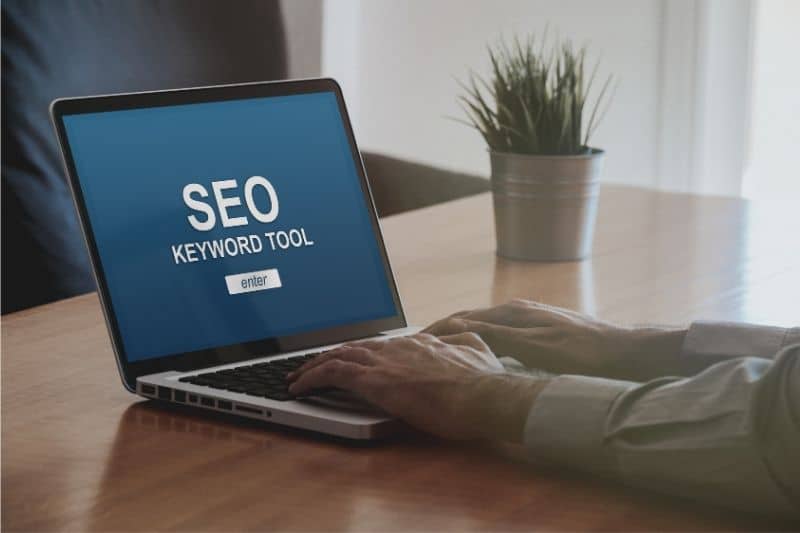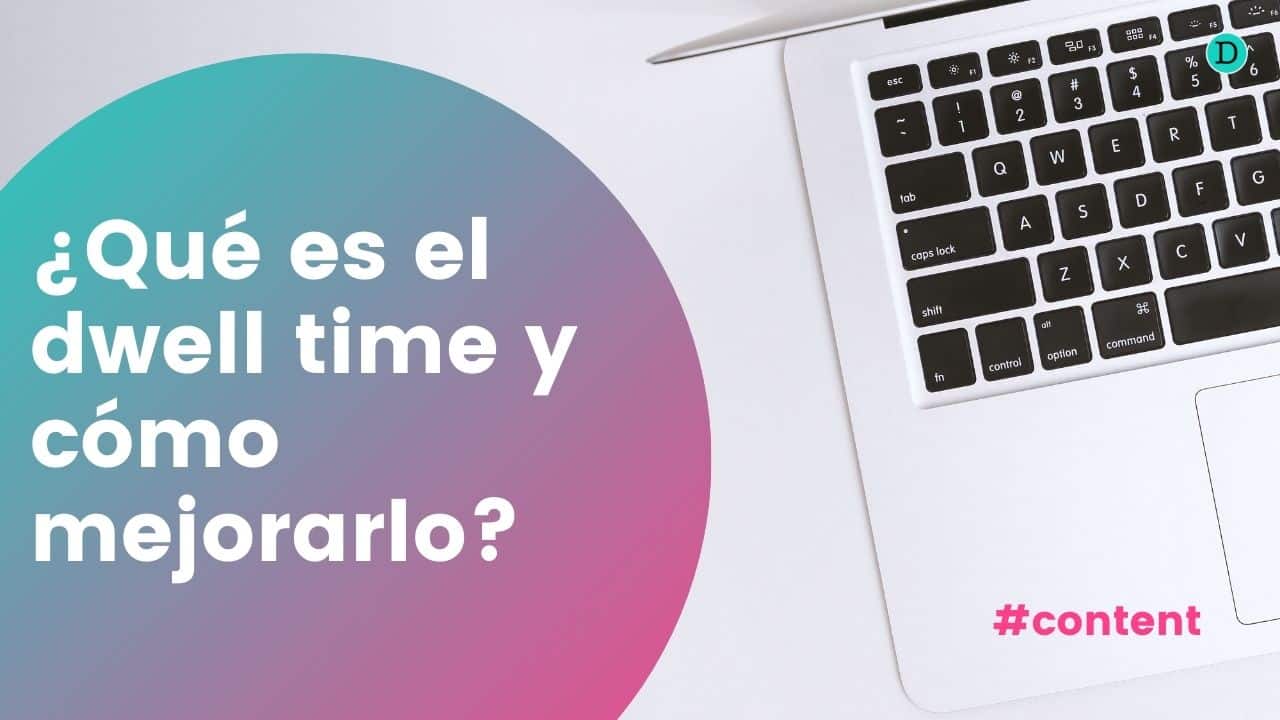As we prepare to move forward in the digital strategy of our company, to decide whether to invest in SEO or SEM is one of the most crucial decisions we will face. Or, at least, that is how we can perceive it.
In reality, we can achieve more or less similar results, with nuances that I will explain, with either of the two options. And, of course, as long as we can afford it and it fits in with our business, the best option is to combine them.
Even so, I do want to point out that the thought that SEM brings immediate resultsbut more expensive and SEO long term resultsis not real 100%.
A successful SEM strategy will require a campaign phase planning which also requires travel.
Let me explain. If you want we can start a sales-oriented SEM campaign today. And if you have enough budget you may have sales from day one. However, if you are looking for optimise your return on investmentYou can't just go for it.
You have to find out where your clientele is, make yourself known, make an impact on several occasions, etc... until you finally move to the SALES PHASE. This will greatly reduce your cost per click and will make you sell more for less in the medium term than if you just spend money for the sake of spending.
With the SEO similar, the SEO content strategy should also take into account the stages of the conversion funnel. Plus the time needed for Google to discover you, understand your relevance and index you.
Still, when you reach a person through the organic channel it is someone who is looking for your result. Someone who has taken the initiative and you have appeared to help them. However, with SEM you are the one who takes the initiative (more or less because if you appear in the search results you are also responding to their initiative, not if you use social ads) and that reduces the chances of conversion a little.
But let's go back to the beginning.
Differences between SEO and SEM

Before deciding whether to SEO or SEM Let us clarify the concepts. We know by SEO at organic search engine positioning. Acronyms for Search Engine Optimisationrefers to our pages appearing in the first positions in search engines, generally Google.
Although when we talk about SEO we think about Google automatically, we cannot overlook the fact that there is the SEO on Youtubein SEO on Amazonetc... beyond other search engines with more residual searches in Spain.
This is important because you may find it more interesting to work on your SEO on Amazon or YouTube than on Google. according to your type of business.
In terms of SEMstands for Search Engine MarketingThe term "advertisement" is used in practice to refer to advertisements in the search results. When we talk about ads on social media, we don't usually talk about SEM but of social adsas they are not search engine advertisements.
However, in order to be more practical, this article will include the social ads within the SEM to put on the one hand the online advertising and, on the other hand, the search engine optimisation.
When to use SEO?

As a SEO specialistI may have a weakness for this option. But if I do (and if I've ended up specialising in SEO) is for a reason. Mainly because it is the natural source of business growth. That's why we talk about positioning organic.
It is organic, natural, inherent, logical and even common. It is the natural process of a company's growth on the internet. You grow, you become more and more relevant and you appear more and more in the Google results.
The problem? It is not an immediate process. Especially if we start from scratch or from a poorly done job. To start getting results we need, on average, between three and six months. If we start from zero, we can fall behind by as much as nine.
(This will also depend on the budget/time/talent triomial we have, of course).
The advantage? The results are more "permanent". A good SEO work should be continuous and should never be abandoned, even if it is at a "maintenance" level. But, if you get to a good level of SEO, even if you stop work completely, you will maintain results (or only drop slightly) for quite some time, even years, depending on how competitive your sector is.
We can compare it to cleaning your house. If you do a deep clean one day, you may not need to clean again for a week, but you will have to dust or clean the toilets because as long as your site is running, there are things that can get dirty.
Basically, the law of entropy. Every system is prone to degradation. The difference with the online advertising is that the moment you stop paying, you are not going to get any results. However, in SEOThe process of degradation is very slow and can take years to complete and make us disappear from the SERPs.
SEM: faster results and better control of investment

Following the question on SEO or SEMI will go on to explain what I see as the big advantages. The first, clearly, is speed. I have already told you that a good SEM strategy is not as fast as you might think, but it's still a hell of a lot faster than a SEO strategy.
It also requires less infrastructure. To do SEO you need your website, maybe a blog, maybe product sheets, etc... However, you can do SEM simply with a landing page or if you are going to do social ads with a native form Facebook, LinkedIn, etc... (Native form options are also available in Google Ads.).
At the production level, to prepare for the launching of the SEM campaign is much simpler. Then you have to complicate it with heat mapstaking into account the UXetc... but equally these elements also need to be considered when doing SEO.
On the other hand, we will have a very easy control of how much we have spent and (we should) what is the investment we have recovered. Once the campaign has had a bit of a run, we can take averages of how many leads we need per customer, what average profit we make per customer and, in this way, know exactly how much money we can spend on each lead.
At SEO We should also take all these indicators into account, but the problem is that as they need more time to get up and running, it will take a lot longer to start monitoring them. But please monitor them, it is the only way to know if your strategy is working or not.
SEO and SEM: a necessary feedback

Nor did I want to finish this piece without talking about what, for me, is the best option. If you can afford it (and this is very important) combining online advertising and SEO strategy will give you even better results than using it separately.
I say it's very important because if you go half-heartedly with both, you might not reach your goals. If you don't have so many resources, it is better to focus on SEO or SEM. However, from a minimum level, combining strategies will give you better results.
Always bearing in mind that it will depend on the specific casuistry of your business. But I am talking about the usual in a general way.
This is also stated in the general systems theoryA system is more than the sums of its parts, and that is exactly what happens if we combine SEO and SEM. Of course, in order to do this, you have to have the necessary resources. If we don't have enough, it is better to focus on just one of them.
The first phases of SEM campaigns will help us to have more data about the audience that is actually interested in what we offer and the keywords research organic and paid will complement each other throughout the process.
In addition, deriving SEM traffic to the pages we want to position will give us an important advantage. We will be able to start measuring the on-page behaviourthe dwell timeetc... with respect to a specific keyword. We and, of course, Google.
Because in organic, this is often the most complicated process. Getting it indexed, reaching a high position and Google can see that our content has quality and is of interest to the user. However, with SEMGoogle may have this data in advance of our use of the data only if we use the data in the following cases SEO.
Let's not forget the CRO

Finally, I would also like to mention another very important aspect when working on the SEO and the SEM. This is the CRO, an acronym for Conversion Rate Optimisation. Conversion rate optimisation is essential in the following areas SEM and, in most cases, also in SEO.
I say for the most part because in SEO does not always apply. For example, I have sometimes worked on outreach or media projects. In those cases, it wasn't about selling anything or getting any leads, we just needed traffic. If you are just looking for traffic o brand awareness (for which you can also use paid), you do not have to worry about the CRO.
However, if you want the user who enters through your online advertising campaign or through Google to buy your product, leave you their details, download your guide or anything else, then you need to make it as easy as possible.
We can do this by A/B test and check if similar audiences convert more with the location of the button in a certain place, with some colours or others, etc...
CRO works as a complement that helps to achieve better results in our marketing strategies. SEO and SEM.
With all the machinery in place, the resources devoted and the work taken seriously, success is only a matter of time.


